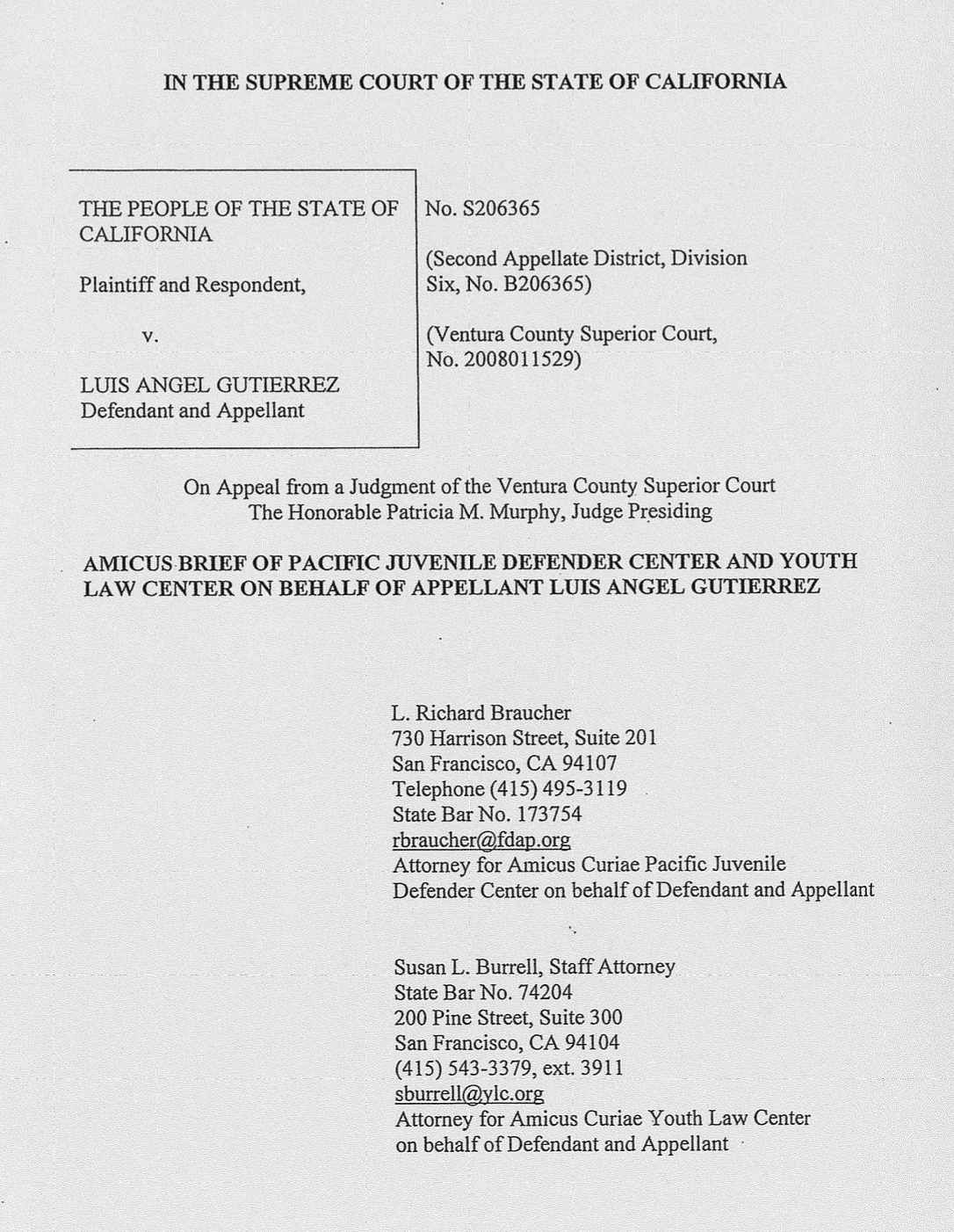
Summary of Argument
This case involved a single act of extreme violence committed by an intoxicated teenager with no criminal record. His relatives struggled to understand how this could have happened. (4 RT 863-864, 866.) The probation officer's assessment was that he was at relatively low risk of committing a new sexual offense. (POR 17 .) Nothing in the record suggested that Luis suffers from "clearly unsalvageable depravity." (Miller, 132 S. Ct. at p. 2469.) The factors most contributing to his out of control behavior in the offense - immaturity and substance abuse - are things that generally change with maturity.
The trial court in this case failed to consider whether "as the years go by and neurological development occurs, his deficiencies will be reformed." (Miller, 132 S.Ct. at p. 2465.) Whether this was because the court viewed section 190.5 as mandatory, orsimply failed to consider the characteristics of the offender, a sentence of life without the possibility of parole was improper. As Miller observed, "the distinctive attributes of youth diminish the penological justifications for imposing the harshest sentences on juvenile offenders, even when they commit terrible crimes." (Ibid.) While a state is not required to provide eventual freedom, "some meaningful opportunity to obtain release based on demonstrated maturity and rehabilitation" should be offered. (Id. at p. 2469.) For each and all of the foregoing reasons, we urge the Court to find that the life without the possibility of parole sentence in this case was improper.